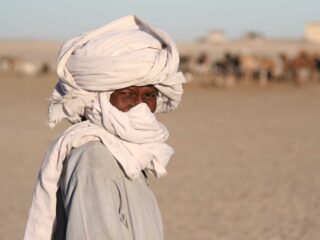The Fulani have a long history as nomadic cattle herdsmen, always in search of food and water. Some have settled and incorporated farming into their lifestyle.
As one of the the first African tribes to follow Islam seven centuries ago, their nomadic lifestyle helped to spread the religion across much of West Africa and are believed to have brought Islam to northern Nigeria. The majority of Fulani, however, observe a mix of traditional and Islamic beliefs and practices.
Because of their adherence to Islam it is a risk to share the Good News of Jesus with them, and exceptionally dangerous for any Fulani who openly declare their Christian faith. Many have had to flee home because of persecution. Illiteracy and a sense of distrust of outsiders are other challenges to reaching the Fulani.
Today it’s estimated that there are several thousand Fulani Christians in Nigeria – and that number continues to grow, with recent reports of God speaking to individual Fulani in mysterious ways through the power of the Holy Spirit. Many of them gather weekly to worship in churches they have constructed themselves. However, the number of believers still represents only around one percent of the overall population. The number of missionaries working among the Fulani is also very small.
After many years of prayer Mission Africa appointed its first indigenous missionary to the Fulani in 2007. In partnership with SIM International we also support and encourage Fulani believers.
The Fulani have been described as one of the ‘gateway people groups’ of the world. With their migratory lifestyle, any significant turning to Christ among them would greatly influence other related groups.

